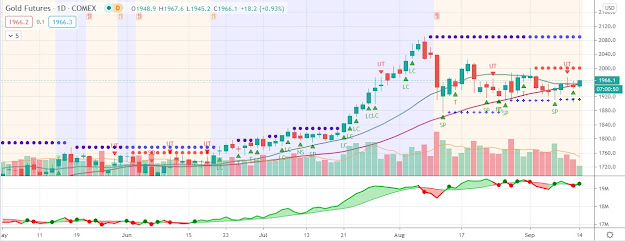Gold price plunged Friday as global stock and commodity markets fell amid fresh worries over whether Greek politicians
The gold price plunged Friday as global stock and commodity markets fell amid fresh worries over whether Greek politicians will pass the austerity measures necessary for the financially-strapped nation to receive its next installment of bailout funds. Gold prices fell $17.30 to $1,711 per ounce. Just yesterday, gold prices eclipsed the $1,750 per ounce level, before relinquishing all of its gains as the day concluded. The downside reversal in the gold price coincided with a rebound in the U.S. dollar, which pared its losses against a basket of the world’s most liquid currencies. The SPDR Gold Trust (GLD), which had risen by as much as 1.1% to $170.37, settled lower by 0.3% at $168.02 per share. Shares of GLD traded at 166.01 early Friday morning.
Looking ahead, many analysts expect the action of central bankers to continue to fuel gains in the price of gold. In its latest edition of its Metal Matters Monthly publication, the precious metals research team at ScotiaMocatta discussed its outlook for higher gold prices. “The reasons for being bullish have changed over the years, with some of the early ones, like producer dehedging, having largely run their course now,” the firm noted. “But, there seems no shortage of new reasons to be bullish for the metal. At present the concerns over EU debt and the fragility of the European monetary system seem to be taking centre stage and although there seems no end in sight for this problem, it looks likely that concerns about the US deficit and its massive debt levels could be waiting in the wings.”
ScotiaMocatta went on to say that “It seems highly likely that US budget and debt issues will become key topics in the US election and like the debt-ceiling standoff last July, may well fuel safe-haven buying. In addition, the fact Japan experienced a budget deficit last year, for the first time since the 1980’s may well mean that Japan’s public debt becomes an issue too.”
In summary, the firm asserted that “The combination of high levels of debt, a monetary system in the developed world that is creaking at the seams and falling confidence in governments’ handling of the crisis, are all likely reasons why investors, central banks and sovereign wealth funds, may be keen to hold more Gold as they diversify away from the dollar, the euro and other investments backed by fiat currencies.”
Looking ahead, many analysts expect the action of central bankers to continue to fuel gains in the price of gold. In its latest edition of its Metal Matters Monthly publication, the precious metals research team at ScotiaMocatta discussed its outlook for higher gold prices. “The reasons for being bullish have changed over the years, with some of the early ones, like producer dehedging, having largely run their course now,” the firm noted. “But, there seems no shortage of new reasons to be bullish for the metal. At present the concerns over EU debt and the fragility of the European monetary system seem to be taking centre stage and although there seems no end in sight for this problem, it looks likely that concerns about the US deficit and its massive debt levels could be waiting in the wings.”
ScotiaMocatta went on to say that “It seems highly likely that US budget and debt issues will become key topics in the US election and like the debt-ceiling standoff last July, may well fuel safe-haven buying. In addition, the fact Japan experienced a budget deficit last year, for the first time since the 1980’s may well mean that Japan’s public debt becomes an issue too.”
In summary, the firm asserted that “The combination of high levels of debt, a monetary system in the developed world that is creaking at the seams and falling confidence in governments’ handling of the crisis, are all likely reasons why investors, central banks and sovereign wealth funds, may be keen to hold more Gold as they diversify away from the dollar, the euro and other investments backed by fiat currencies.”




Comments
Post a Comment